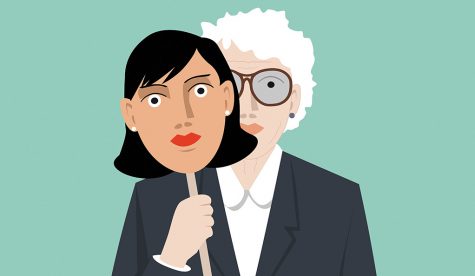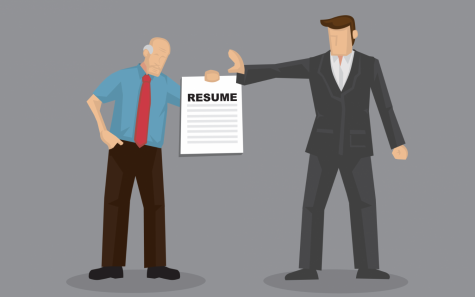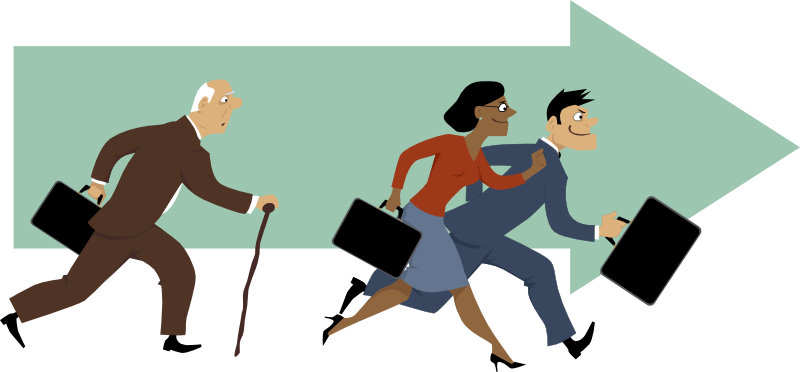How Ageism is Costing Lives
We’ve all heard of ageism, most likely connoting it with discrimination in the workplace or in healthcare. But we fail to realize how casual and deep our prejudice against the elderly runs. Have you ever seen an old man reaching for a can on the top shelf or an old woman struggling to transfer her bags into the back of her car? Your first thought was most likely one of pity, not one of respect or admiration. Your second thought was hopefully altruistic: “I am going to go help them.”
When we see someone elderly, we imagine their existence as one of weakness and suffering. Past the age of sixty, we equate aging to decay, to health issues and depression. We commonly use terms such as “senior moment” to describe our own failings. This inner prejudice influences both our day-to-day actions with the elderly and, more importantly, our legislation.
 Coronavirus has undoubtedly unveiled our neglect of the elderly. The original claim that COVID-19 primarily affected old people was met with relief; young people with their lives ahead of them didn’t have to worry about the virus. With President Trump’s grossly inadequate response and underestimation of the virus, we watched as over 200,000 people lost their lives. According to the CDC, about 160,000 of these deaths occurred in people aged 64 and older. Would the government’s response have been the same if millennials were the majority of cases? Why do we act as if seniors have reached the end of a fulfilling life by the time they pass 70? Would people still be going out without masks and neglecting social-distancing regulations if teenagers were at risk?
Coronavirus has undoubtedly unveiled our neglect of the elderly. The original claim that COVID-19 primarily affected old people was met with relief; young people with their lives ahead of them didn’t have to worry about the virus. With President Trump’s grossly inadequate response and underestimation of the virus, we watched as over 200,000 people lost their lives. According to the CDC, about 160,000 of these deaths occurred in people aged 64 and older. Would the government’s response have been the same if millennials were the majority of cases? Why do we act as if seniors have reached the end of a fulfilling life by the time they pass 70? Would people still be going out without masks and neglecting social-distancing regulations if teenagers were at risk?
Along with facing the incompetence of our federal government during this pandemic, many elderly are suffering from forms of elder abuse online or in residential and nursing facilities. This abuse ranges from psychological to physical to financial. Lockdown has led to a state of social isolation for the elderly, which in turn has led specifically to an increase in mental health issues, substance abuse, sexual abuse against elderly women, and elders’ financial dependence on their caregivers. According to the World Health Organization, around 1 in 6 people aged 60 and older have experienced some form of elder abuse in a community setting, with 2 in 3 staff members of residential and nursing facilities admitting abuse. Our own ageist stereotypes are helping to perpetuate this abuse through social media and the press, as we see the lives of older people as less significant than our own. With a decrease in in-person care and family visits, the residents of long-term care facilities feel abandoned and expendable. Unfortunately, few government agencies have attempted to raise awareness about elder abuse, create a national hotline or provide other appropriate resources for affected elderly, or enforce policies that protect them.
 Many elderly people live fulfilling lives and are valuable contributors to our society. To neglect their needs, to treat their lives as disposable, and to undermine the danger of this pandemic is a grave act of human indecency. In the final presidential debate, President Trump declared that coronavirus was “going away,” that “we are rounding a turn,” despite the third surge of the pandemic. Pushing the “re-opening” of our country, Trump values his own agenda over human lives.
Many elderly people live fulfilling lives and are valuable contributors to our society. To neglect their needs, to treat their lives as disposable, and to undermine the danger of this pandemic is a grave act of human indecency. In the final presidential debate, President Trump declared that coronavirus was “going away,” that “we are rounding a turn,” despite the third surge of the pandemic. Pushing the “re-opening” of our country, Trump values his own agenda over human lives.
Although we may not have the power to impose social-distancing measures, keep the country in a state of lockdown, or enforce legislation against elder abuse, we can re-examine our attitude towards age. By combating our internal prejudice, we take a crucial step towards taking better care of the elderly in this difficult time.

Ella Best is a senior who is passionate about Keystone culture and student life. She serves as the Student Council President and the co-Editor-in-Chief...

